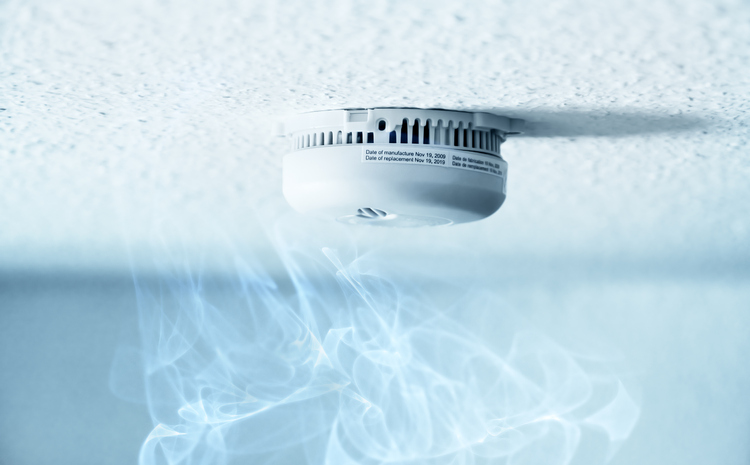Mitigate House Fires with these Basics
According to FEMA, Arkansas has a slightly below average number of fire deaths compared to other states, but a slightly higher than average number of deaths due to house fires than other states.
Of course, fatalities are worse-case-scenario. If you’re a smart homeowner or renter, you have insurance to cover your possessions and structure in the case of a fire (and other catastrophic events), but we would all much rather prevent a house fire than deal with replacing everything we own.
Sometimes things happen, and they are simply beyond our control. But other times, we can take some relatively simple steps to cut back on the likelihood of a terrible event. Here are tips to protect your family, pets, home, and possessions from fire.
Fire Prevention Basics
-
Escape Planning
Always have a family fire escape plan and a meet-up point, not far from the front of your house, so that firefighters will know everyone has made it out. Your plan should include two escape routes from every room. Make sure your windows open easily, and keep a collapsible escape ladder on second stories.
-
Cooking
Pay attention while cooking. Most fires start in the kitchen. Never leave the kitchen while something is frying or boiling, and never leave home while something is simmering or baking. If you leave, even for five minutes, turn off the stove or oven. Keep dish towels and other flammable materials away from the burners, clear crumbs from toasters and toaster ovens regularly, and unplug them when not in use.
Don’t use water to put out a grease fire. Water will actually spread the fire! Smother the fire with baking soda (NOT flour), a special dry powder extinguisher such as Stovetop Firestop, or a fire extinguisher.
-
Smoking
If you smoke, smoke outside, and put the cigarette out in a dish of water or a deep ashtray. Never smoke in bed. Smoking in bed is one of the top causes of fatal residential fires! Also avoid smoking near or on plush furniture, such as easy chairs and couches, since a stray ash could ignite the fabric.
-
Electrical Cords
Check your electrical appliances for frayed, cracked, or broken cords. If a cord shows any signs of damage, replace the cord or appliance.
-
Candles
Only burn candles encased in heavy containers made of non-flammable materials (glass, ceramic, or metal). Don’t leave candles burning when you leave a room, leave the house, or go to bed. And never place candles where children or pets can knock them over or something flammable, such as a curtain, can drift into the path of the flame.
-
Space Heaters
Be cautious around space heaters! Don’t put furniture or any other objects near space heaters, don’t use extension cords with space heaters, and unplug space heaters when not in use.
-
Other Flammable Objects
Actually, it’s a good idea to keep flammable objects at least three feet from any heat source—a fireplace, a space heater, or a furnace.
-
Smoke Detectors
Install smoke detectors on every story of your home, in the kitchen, and in every bedroom. Test your smoke detectors regularly. If it’s within your budget, you may even want to install an interior sprinkler system.
-
Matches and Lighters
Keep matches and lighters well out of the reach of children.
-
Appliances
Never leave the washer, dryer, or dishwasher running when you’re not home, and clean the lint filter in the dryer after each use.
Be appliance-aware! Microwaves and refrigerators are two common culprits in residential fires. There have been incidents of microwaves turning themselves on and starting fires. If you are leaving home for vacation, it’s a good idea to unplug your microwave. And if your microwave starts on its own, don’t simply turn it off—unplug and replace it.
-
Fire Extinguishers
Have a couple of fire extinguishers in your home, in key locations, such as in the kitchen or near the fireplace. Make sure you have a fire extinguisher on every story.
-
Gasoline Storage
Only store gasoline in approved containers, and never store it in your car, inside the house or in a garage or storage shed with a hot water heater, washer or dryer, or any other major, heat-emitting appliance.
-
Housekeeping
Keep your house clutter-free, and keep hallways and walkways clear. Fires in hoarders’ homes are often lethal. Toss away old rags and newspapers, and don’t store anything flammable near major appliances.
-
Cooking
Wipe splattered cooking oil from your stove and range, and make sure your range vents outside.
-
Home Repairs
Do-it-yourself home repairs are great for things like building a fence or repairing drywall, but make sure all electrical and HVAC work is done by a qualified professional.
-
Lighting
Put your lights on timers or simply turn them off when you’re not at home for several days. Overheated bulbs may be a fire hazard.
-
Fire Insurance
Is your homeowner insurance up-to-date, and does your policy fully cover your home and all your stuff? Call one of our local agents today to talk about homeowners or renters insurance.

